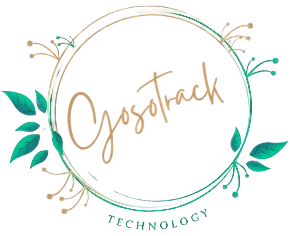
In today’s dynamic business landscape, managing employees and human resources efficiently is crucial for success. Many companies, especially small to medium-sized businesses, face challenges in handling payroll, employee benefits, compliance, and risk management. If you’ve been wondering what is a PEO, you’re not alone. This article will delve into the concept of Professional Employer Organizations (PEOs), explain how they work, and highlight the advantages they offer to businesses.
What Is a PEO?
A Professional Employer Organization (PEO) is a firm that provides comprehensive human resources services to businesses through a co-employment model. In this arrangement, the PEO and the client company share employer responsibilities. The PEO manages critical employee-related functions such as payroll processing, benefits administration, tax compliance, and risk management, while the client company maintains control over day-to-day business operations and employee supervision.
This partnership enables businesses to outsource complex HR tasks to experts, allowing them to focus on their core competencies.
For more information, visit what Is a PEO.
How Does a PEO Work?
When a business contracts with a PEO, they enter into a co-employment relationship. This means the PEO becomes the employer of record for tax and insurance purposes and assumes responsibility for many administrative tasks, including:
- Processing payroll and handling payroll tax filings
- Administering employee benefits such as health insurance and retirement plans
- Ensuring compliance with federal, state, and local labor laws
- Managing workers’ compensation claims and workplace safety programs
- Providing HR support for recruitment, onboarding, training, and employee relations
Despite the PEO’s involvement, the client company retains control over business decisions, employee management, and work assignments.
Benefits of Using a PEO
Understanding what a PEO is reveals the numerous benefits they bring to businesses:
- Cost Savings
PEOs leverage economies of scale to offer better rates on health insurance and workers’ compensation. Small businesses gain access to benefits packages typically reserved for larger companies. - Compliance and Risk Management
Employment laws and regulations are complex and constantly changing. PEOs employ legal and HR experts who keep businesses compliant, reducing the risk of fines and lawsuits. - Time Efficiency
Outsourcing HR, payroll, and benefits administration to a PEO frees up valuable time for business owners and managers to concentrate on growth and operations. - Enhanced Employee Benefits
PEOs can offer competitive employee benefits, improving recruitment and retention. - Access to HR Expertise
PEOs provide guidance on employee relations, performance management, and workplace policies, contributing to a positive work environment.
Who Should Consider Partnering With a PEO?
PEOs are particularly valuable for:
- Small to medium-sized businesses without a dedicated HR department
- Startups aiming for efficient HR management from the start
- Companies expanding into new states with different employment laws
- Businesses with seasonal or temporary staffing needs
Such businesses benefit significantly from the expertise and support a PEO offers.
The Co-Employment Relationship Explained
A key aspect of a PEO is the co-employment model. This legal arrangement means the PEO shares employer responsibilities with the client company. While the PEO handles payroll, taxes, benefits, and compliance, the client company retains operational control over employees’ daily activities and business strategy.
This structure allows businesses to delegate administrative burdens while maintaining control over their workforce.
How to Choose the Right PEO
Choosing the best PEO for your business requires careful evaluation:
- Experience and reputation: Look for a PEO with proven expertise and satisfied clients.
- Service offerings: Ensure the PEO provides services tailored to your specific needs.
- Technology: User-friendly HR and payroll platforms are essential for smooth operations.
- Pricing structure: Understand the fee model—whether it’s a percentage of payroll or a flat fee.
- Customer support: Responsive and knowledgeable support is critical.
Is a PEO Right for Your Business?
If managing HR, payroll, and compliance is overwhelming your team or distracting you from growing your business, a PEO can be a strategic partner. By outsourcing these functions, you reduce risk, save money, and offer better benefits to your employees.
In summary, a Professional Employer Organization (PEO) is a valuable resource that helps businesses manage human resources effectively through a co-employment relationship. To learn more, visit what Is a PEO.
Conclusion
Knowing what a PEO is can help you make informed decisions about managing your company’s workforce. PEOs provide access to expert HR management, streamlined payroll processing, improved compliance, and enhanced employee benefits—all of which contribute to a healthier, more competitive business.
